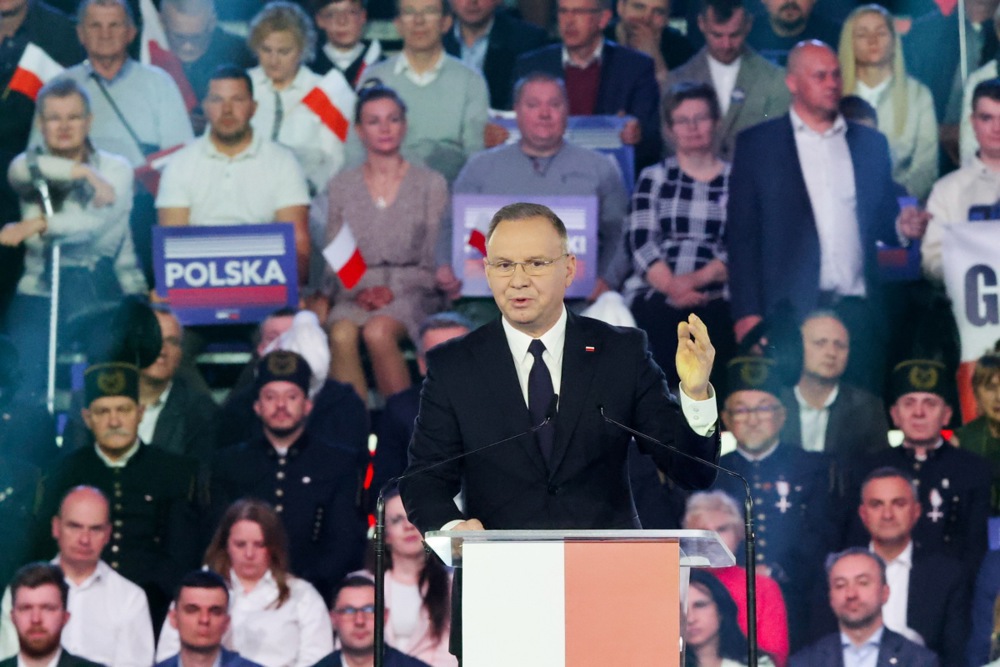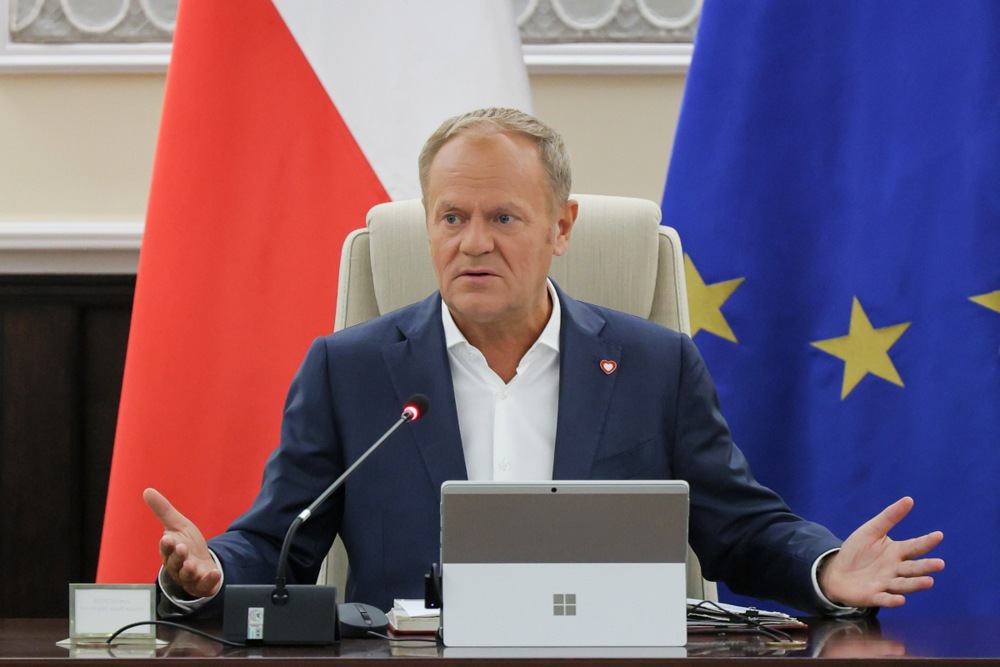Polish Prime Minister Donald Tusk and his Civic Coalition (KO) have continued questioning the validity of the election of the opposition Conservatives (PiS) candidate Karol Nawrocki in Poland’s spring presidential election, despite a lack of support from their coalition partners.
The latest moves against Nawrocki being installed as president include one by the justice minister Adam Bodnar. He wrote to the Speaker of Parliament Szymon Hołownia listing failings of the Supreme Court’s validation of the election result, prosecutors investigating the conduct of the election in around 250 polling districts and charges brought against the chief justice of the Supreme Court.
Nawrocki defeated the Tusk KO’s Rafał Trzaskowski by a margin of 370,000 votes out of a total of 21 million votes cast (51 to 49 per cent). Afterwards, some members of the KO demanded a recount of the votes on the basis of evidence that in a little over a dozen polling districts irregularities had occurred with regard to the counting of the votes.
The Supreme Court’s Supervisory Chamber considered all the protests filed and on July 1 ruled that the incidents did not in any way affect the overall result of the election. The government, though, has said it does not recognise that chamber as a legitimate court. That was, it said, because it was appointed during the judicial reforms of the last PiS government, many of which were questioned by European courts.
Hołownia on July 7 ruled that he would convene the session of Parliament at which Nawrocki would take the oath of office on August 6, the date when the present PiS-aligned President Andrzej Duda finishes his second and final term in office.
But the government has so far failed to publish the Speaker’s announcement in the country’s journal of laws although that does not invalidate Hołownia’s decision.
It was also revealed that Hołownia, who leads Poland 2050 (one of the parties in Tusk’s coalition) had earlier held meetings with PiS leader Jarosław Kaczyński. In those he was said to have aired his frustration with Tusk over pressure being brought to bear to make him postpone Nawrocki taking the oath of office.
Tusk’s other coalition partners, the Polish People’s Party and the Left party, have also gone on record stating that they accepted the election result and that Nawrocki would be president.
The KO has fallen behind PiS in the opinion polls and both the government’s and Tusk’s individual ratings have declined, leading to speculation over whether he will still be Prime Minister come the parliamentary election in 2027.
But on July 17, Bodnar made public a letter he had written to Hołownia in which he detailed a list of what, in his view, have been irregularities in the way the Supreme Court went about validating the election result.
He repeated the government’s view that the chamber was not legitimate and added that it had failed to adequately review the filed protests against the election result. He also alleged lack of co-operation with the office of the prosecutor general over the whole process.
Bodnar also informed the Speaker about the fact that prosecutors were carrying out an investigation of around 250 electoral precincts with regard to how the vote was conducted and that the process included the recounting of the votes.
In another related move, Bodnar announced on July 16 that he was requesting the Supreme Court and the Tribunal of State [the body responsible for adjudicating breaches of the Constitution by state officials] to lift the judicial immunity of the Court’s chief justice Małgorzata Manowska to face charges. They were for allegedly committing three offences in relation to her alleged holding of sessions without the required quorum, the alleged failure to call a session of the Tribunal of State and her alleged refusal to reinstate a Supreme Court judge who had been suspended by the court’s disciplinary chamber the government does not recognise.
Manowska, as head of the Supreme Court, has recently refused the Tusk government’s demand that the validation of the presidential election won by Nawrocki should be taken away from the Supervisory Chamber of that court because it was created and staffed during the time of the last PiS government.
She argued that it was legally impossible for that to be done as the law stipulated the election had to be validated by the Supervisory Chamber and made no provision for tasking another chamber or the whole court with the responsibility.
Since PiS lost power in late 2023, Manowska has been critical of the ruling coalition’s moves such as attempts to purge the judges appointed by Duda and the government’s refusal to recognise decisions taken by the constitutional court and the National Council of the Judiciary. It called that behaviour “a violation of the foundations of the constitutional order”.
Manowska, on July 17, reported the government to the public prosecutors over the fact that it published the Supreme Court’s decision to validate the election with a note stating that, in terms of European law, the ruling came from a body which was not recognised as a court of law.
That, according to Manowska, constituted “unlawful interference by the executive branch and an audacious attack on the independence of the Supreme Court”.
She added that the law governing the publication of such acts did not allow any additions to be made therefore the annotation was an “obvious violation” and allegedly a criminal abuse of power by a public official, an offence carrying a prison sentence of up to three years.
Manowska also argued that European rulings on the chamber “bear no substantive relation” to the resolution in question because according to European Union treaties determining the validity of Polish presidential elections did not fall under the jurisdiction of European courts.





